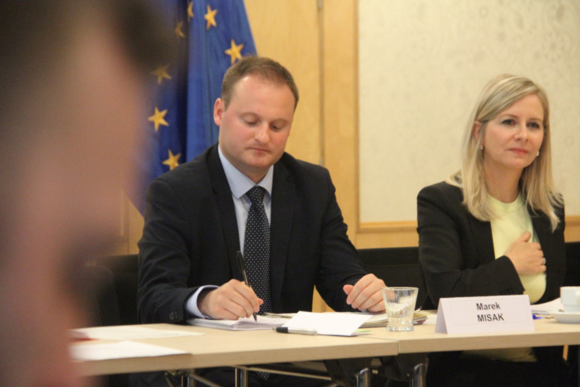COMECE hosted a dialogue meeting between faith-based actors and policy-makers in preparation of the upcoming negotiations on the future cooperation between the EU and the ACP countries.

Stakeholders from the European External Action Service, European Commission, European Parliament, as well as faith-based actors from the field, discussed ways of shaping the future relations between the EU and African, Caribbean and Pacific (ACP) countries.
The event was co-organised with the Conference of European Churches, the Bahá’í International Community and the Quaker Council for European Affairs in view of the renewal of the Cotonou Agreement in 2020, and of the forthcoming start of negotiations.
Instead of a mere donor-recipient relationship, COMECE encourages efforts towards a fair, comprehensive and responsible partnership based on common principles and interests, while taking into account the specificities of each party.
The meeting highlighted the need to better integrate within the EU-ACP framework a multi-stakeholder approach by allowing various actors – including civil society and religious communities – to actively participate at all stages of decision-making processes.
In view of integral human development and sustainable peace, COMECE proposes to focus the EU-ACP partnership on social, economic and political empowerment of young people, families and communities.
Churches and religious communities are long-standing promoters of people-centered development. Their grassroots actions in areas, such as education, healthcare and social services should – as pointed out by several participants – be recognised and adequately supported also within the future EU-ACP cooperation framework, including through a non-discriminatory access to respective EU funding instruments.
Media
Photo Gallery
